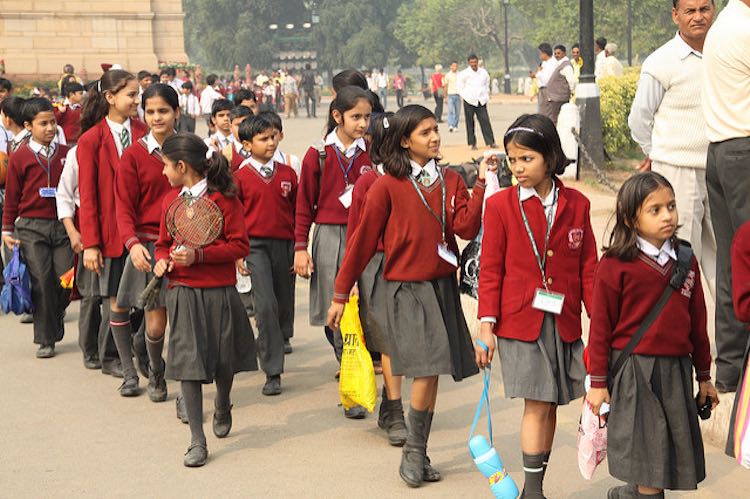Indian schools are adding a new element of education to their intensively academic curriculums: happiness.
Over 1,000 Delhi schools are now kicking off their school day with 30 to 45 minute-long happiness classes in which the kids are taught about mindfulness and self-care, rather than math and science.
Legislators hope that the program will help to relieve the anxiety and stress that is notoriously synonymous with Indian curriculums.
“We have given best-of-the-best talent to the world,” said Manish Sisodia, Delhi’s education minister, according to The Washington Post. “We have given best-of-the-best professionals to industry. We have been successful so far. But have we been able to deliver best-of-the-best human beings to society, to the nation?”
RELATED: Yale is Letting Anyone Take Its Most Popular Class Ever for Free
The news outlet goes on to emphasize the rigid structure of the nation’s educational system; top universities typically only accept students with test scores of 98% or higher; emphasis on grades and testing has triggered high rates of stress amongst public school students; and India’s industrialization process has pushed thousands of students to pursue careers in skilled labor positions, which has raised concern over whether grads and young citizens are ignoring the importance of creativity and wellness.
“If a person is going through our education system for 18 years of his life and is becoming an engineer or a civil servant, but is still throwing litter on the ground or engaging in corruption, then can we really say that the education system is working?” says Sisodia, according to The Post.
But with the happiness classes, teachers talk with students about inspirational figures and uplifting stories; pupils undergo guided meditation; and they are asked to visualize things that make them happy as a means of improving their mood and motivation. The best part? There are no grades, tests, or textbooks for the class.
MORE: Why Smiling Is Good for You – and Five Guaranteed Grins on World Happiness Day
Though Indian teachers only have anecdotal evidence of the course’s success since its recent implementation, a similar US-based meditation program has experienced dramatic success amongst at-risk students.
The Quiet Time Program showed a 65% decrease in violent conflict, a 40% reduction in stress and anxiety, and an 86% reduction in suspensions over a two-year period, along with a dramatic increase in self-confidence, creativity, and happiness.
CHECK OUT: This School Banned Cell Phones—and Everyone is Happy That They Did
Yale’s own course on happiness and wellness was so popular with their students, they started teaching it online for free.
An 11-year-old Delhi student summed up the lesson of the happiness classes quite nicely by saying: “We should work happily … [because] when you work sadly, your work will not be good.”
Be Sure And Share The Happy News With Your Friends – Photo by Travphotos, CC




















